
Best quotes of Hong Kong’s ‘girl next door’ Karen Mok to the Post over the years, from views on her Leslie Cheung love scene, to why nudity in films ‘isn’t necessary’
- Mok is one of Hong Kong’s biggest stars of the last few decades, with a raft of movies and albums to her name
- We recount some of her most notable quotes over the years, from her ‘amazing’ experience working with Wong Kar-wai to her role in So Close, and more
All performers had a niche during the 1990s, and Hongkongers thought of Karen Mok Man-wai as the friendly girl next door who was game for anything.
Mok’s down-to-earth nature belied her ambition, which led to success as both an actress and a singer.
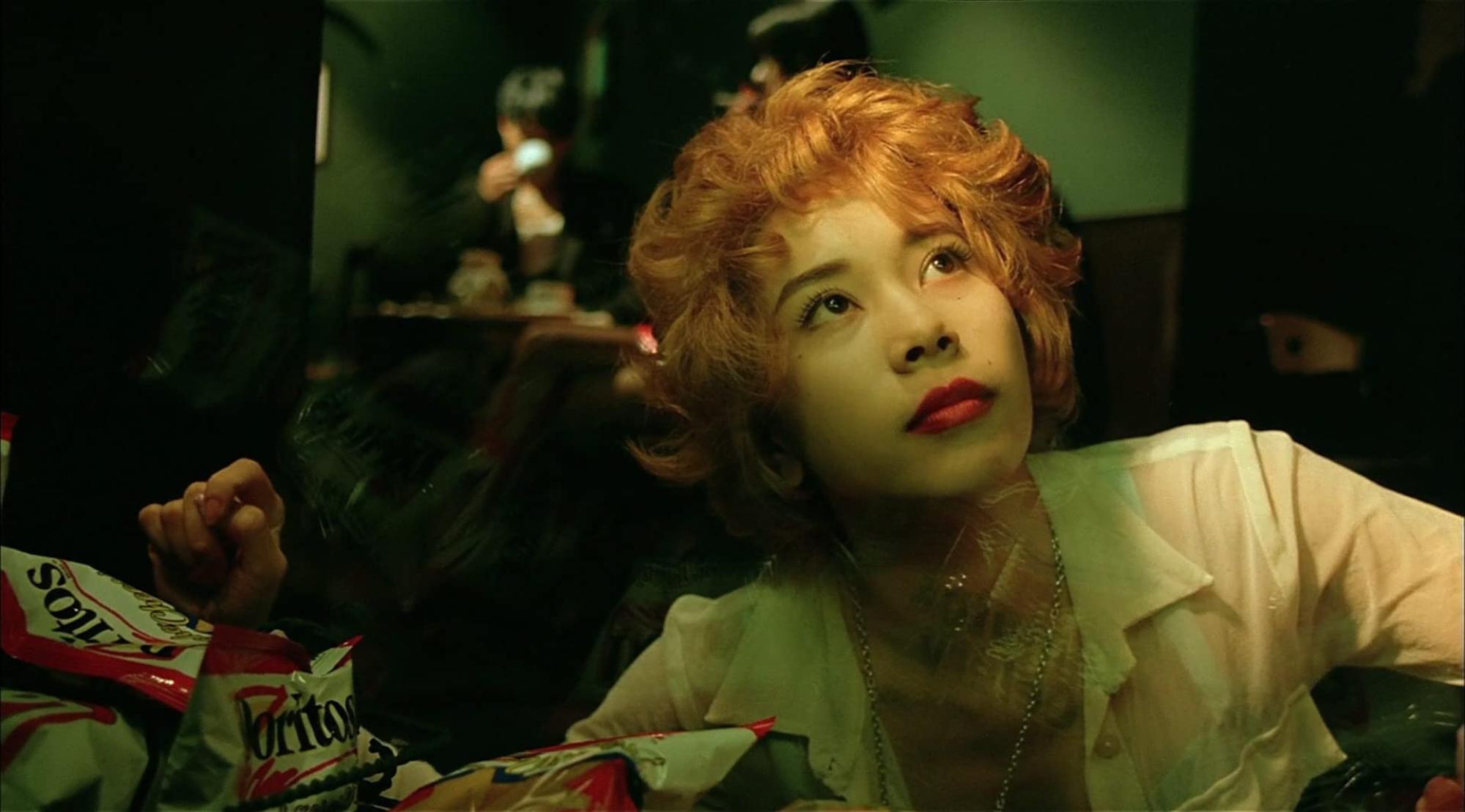
Like most actresses of the time, she took just about any role that was going, racking up over 50 appearances throughout the years.
The Post often checked in with Mok, and below are some of the things she told us over the years.
Meet Anita Yuen, the Audrey Hepburn of Hong Kong who crossed Jackie Chan
On always wanting to be a star:
“I sort of knew when I was a kid that I would grow up to be some kind of performer. I didn’t go around telling people that ‘I want to be a star’ because that would just get you into trouble. But I always knew.”
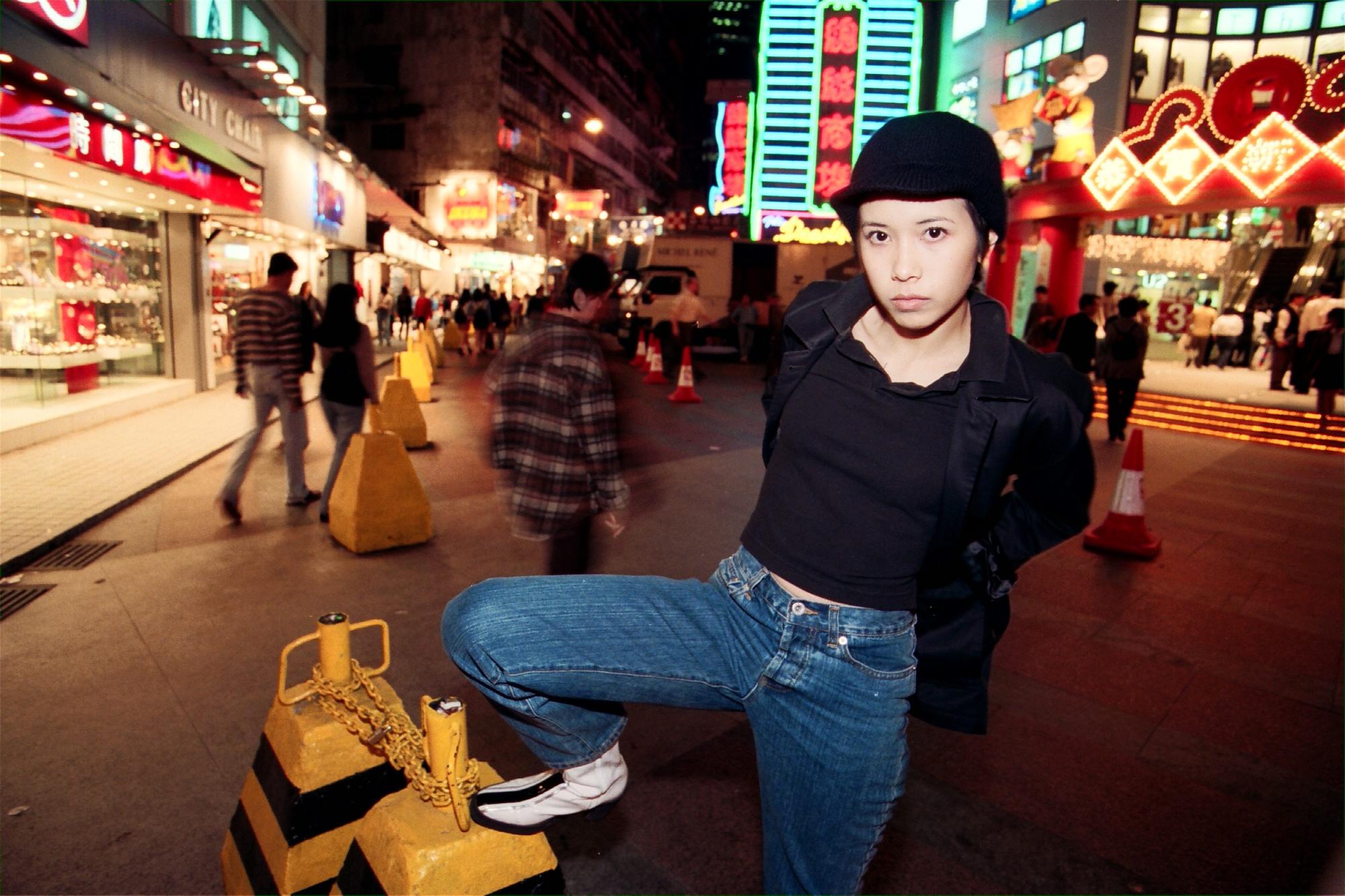
On making the most of her start in films:
“In this business, you grab whatever comes your way. You cannot control it. I’ve been lucky enough to get a good start in my film career. A few of the movies, such as A Chinese Odyssey and Fallen Angels, have been big productions. The casts have been good and so have the directors.”
On getting a call from Wong Kar-wai to offer her a role in Fallen Angels:

On the difference between her image as a singer and her image as an actress:
“I decided not to opt for a pre-packaged image. With the films, I play different roles each time and they don’t have to represent me in that sense. With the singing, I can be more natural. I don’t want to design a new character for myself.”
On her role in Sexy and Dangerous, a Wong Jing-produced rip-off of the Young and Dangerous films:
“It was very exciting being part of the film. I have never heard of a film that was made in two weeks before and I think it is an honour to be part of it.
“When they told me about it, I thought it would be really tough. But it turned out to be all rather fun. I guess when you enjoy what you’re doing, it never feels tough.”

On having to rush the film’s production:
“I didn’t have to think too much about the acting and what I had to do, so my acting came across as more natural. Sometimes, when you study the role too much, it isn’t good.
“There were times when I was dozing off and they would come and get me to go on the set. I thought we were rehearsing and just put on a casual performance. But the next thing I knew, the director had already approved the shot!”
Police and criminals as bad as each other in ’80s film Long Arm of the Law
On deciding to use a nude picture on the cover of her music album Karen Mok: In Totality:
“I had this picture in my mind for a very long time. I’ve always thought it would be pretty cool, pretty nice. I mentioned it to Jan [Lamb Hoi-fung, the album’s art director] and he jumped at the chance to do it for the cover.
“We wanted to keep everything simple for this album. Even the picture should be simple – nothing could be simpler than this. It isn’t easy for something to be simple, have character and make a strong impact.
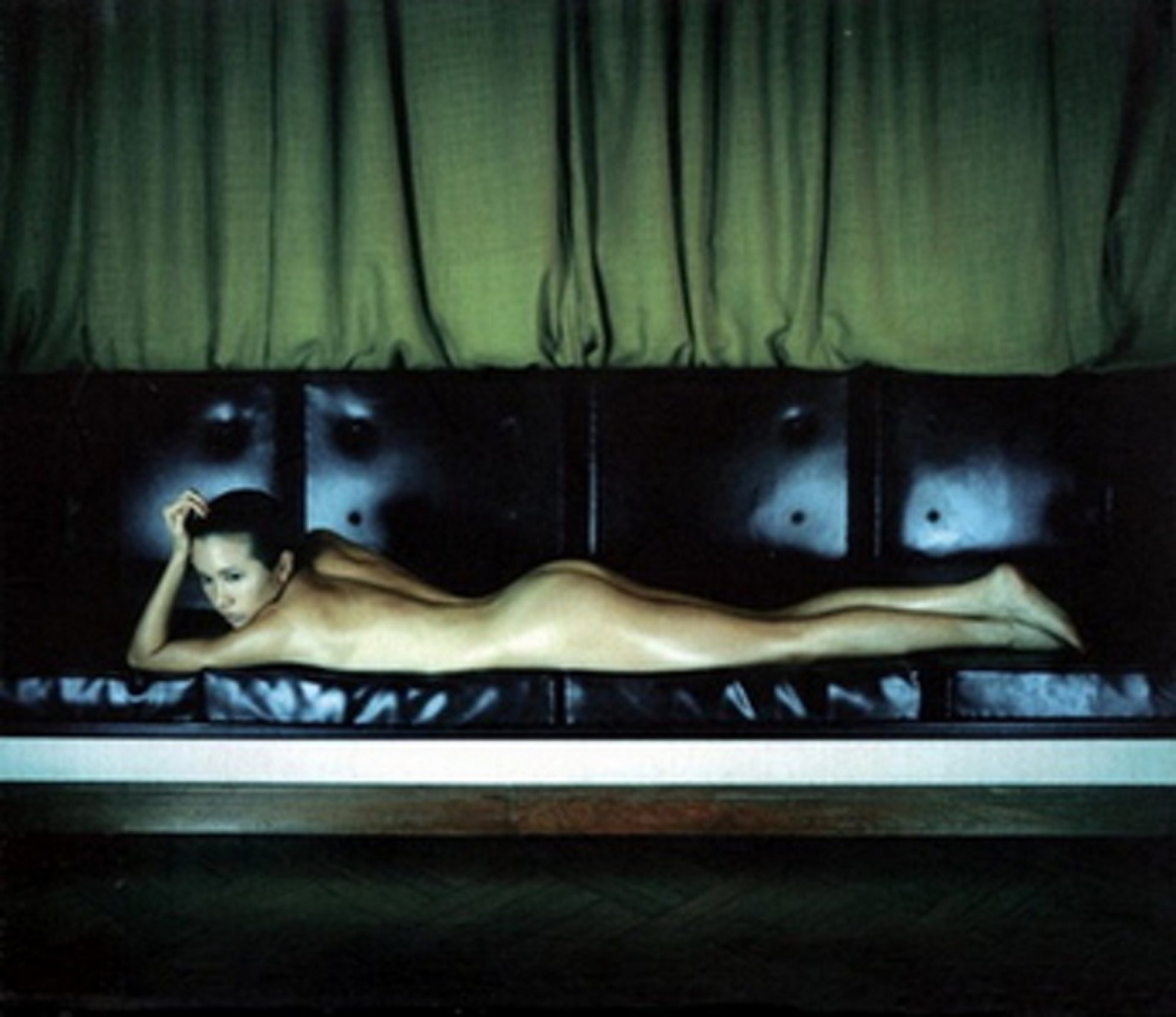
“I think the whole silhouette looks nice. There were a lot of different poses and one of the guys involved in the cover design work said that it was the arch of the waist and the derrière that made it nice. This album isn’t erotic, and I don’t think that the picture is in any way unhealthy.”
On her role in Derek Yee’s drama Viva Erotica:
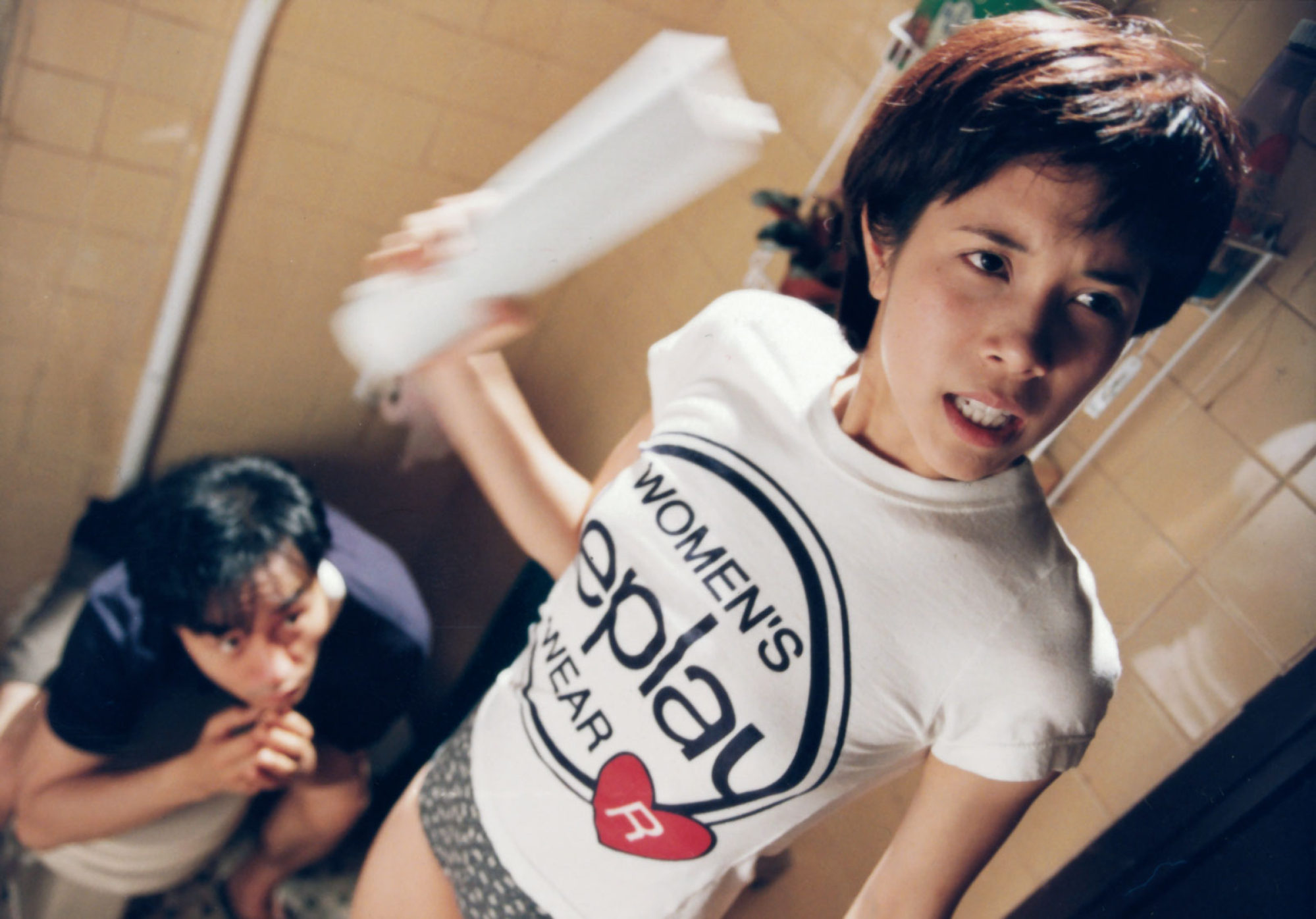
On whether she would have preferred to play Shu Qi’s character, a Category III star, in Viva Erotica:
“When I first saw the script I did think that was the special role. But at the time, I didn’t feel that I wanted to bare myself for the role or the movie. The role would have been a lot of fun but I have actually done those sort of bimbo roles before.”

On nudity in films:
“I would consider nude scenes only if the show would fall apart without them, or if it truly didn’t make sense. If it is just for the sake of having nudity, or for a common love scene, then I don’t really think it’s necessary.”
On her desire to make action films:
“I enjoy the adrenaline rush of action stunts. I’ve been taking wing chun [martial arts] classes under a sifu [master] so that I can look more realistic. If I can use it for film work, great. If not, it’s still good for health.”
On playing an ‘ugly’ character in Stephen Chow’s The God of Cookery, and appearing in Chow’s Shaolin Soccer:
“They have to find the prettiest to play the ugliest! But in truth, these roles are hard to find.
“The role in The God of Cookery was a lot of fun. From the physical appearance to the character, nothing could be more extremely exaggerated than this.
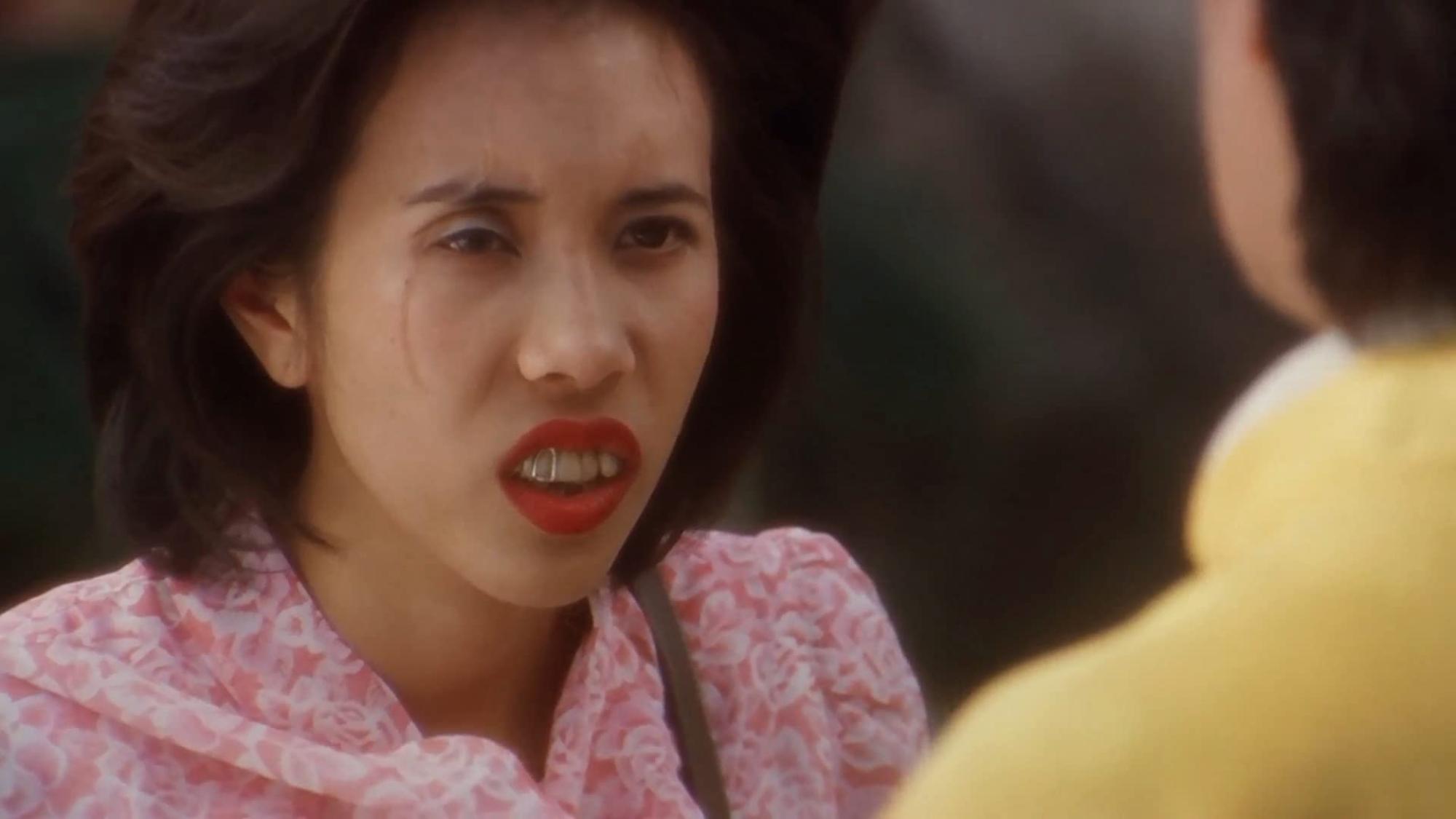
“As for Shaolin Soccer, I really think it hit at the right time. Hong Kong was going through this sort of depression and this movie is really gung-ho and positive and on a subconscious level it really gets to you.”
On her action role in So Close:
“I keep looking towards things that I haven’t actually done before, and that’s why I’ve been getting into action films like So Close. I know with those I will have bruises all over me by the time we’ve finished shooting, but I did a lot of dance when I was a kid so I can handle it pretty well.”

On how some directors don’t think she is ‘Chinese’ enough for kung fu because she is Eurasian and studied abroad:

On adapting to working in mainland China:
“Of course, the people in China have a different personality, just as Hong Kong people have their own attitudes and the Taiwanese people have their own, too.
“But that’s what I like. To meet new people in new places and to do something different. Perhaps it’s because I studied at an international school and was in touch with students from all over the world.”
In this regular feature series on the best of Hong Kong cinema, we examine the legacy of classic films, re-evaluate the careers of its greatest stars, and revisit some of the lesser-known aspects of the beloved industry.
